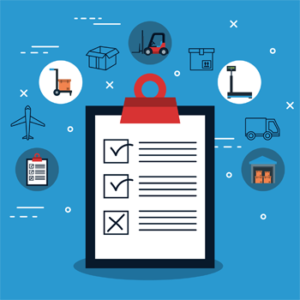
Order fulfillment, which includes the warehousing and shipping of products, is a critical piece of the ecommerce process. It’s the product’s final leg of the journey from concept to consumer. And if an online retailer doesn’t have a solid fulfillment partner, they may be losing big!
Here are 5 critical signs that an ecommerce retailer may need a new order fulfillment center…
1. Scalability Concerns
Many startups eschew an outside fulfillment center at the beginning of their business cycle for many reasons…
– They may want to have final look at a product before it’s shipped.
– They may be experiencing the normal funding crunch that happens to many startups.
– Or they may not know exactly what type of volume to expect the first year.
Whatever the case, many startups end up using an empty room in their house for initial fulfillment. While this is not uncommon, it’s unsustainable for even moderately successful ecommerce retailers, as they lose out on volume shipping discounts, they risk errors in shipping, the management of staff, facilities and equipment become too difficult, and/or they risk an inability to fulfill orders due to inventory volume constraints.
As an online seller grows sales, order fulfillment is often the first thing they outsource, and a good fulfillment center can provide you with the accuracy and space to quickly grow your business.
2. Poor Inventory Management
Inventory management can make or break a new ecommerce retailer.
The last thing anyone wants is a backordered product that forces shipping delays, or missed opportunities because funds are tied up in dead stock. After all, a full 70% of online shoppers would prefer to purchase a similar product from a competitor rather than wait for a backordered product!
A good fulfillment center monitors inventory on the behalf of a retailer and communicates that information quickly. Modern fulfillment companies even offer services to connect that information via mobile technology, either through a mobile-friendly website or an app. Given that nearly half of all small businesses don’t implement any kind of inventory tracking software, allowing a fulfillment center to manage that burden just makes sense.
3. Product Returns and Shipping Cause Headaches
Returns are an inescapable part of the ecommerce industry.
While good retailers can successfully minimize returns through various methods, they can never fully eradicate them. A good fulfillment partner can reduce and even eliminate the stress that returns can add into a system.
For retailers that sell apparel, having a fulfillment center experienced in returns is a mandatory part of the process. Being able to quickly and accurately swap out size changes and process returned inventory keeps revenue coming in and public reviews satisfied, which is why fulfillment companies like eFulfillment Service offer the technology and resources to make this process as seamless as possible.
4. Dead Stock Costs Too Much
Let’s face it, nearly every retailer has SKUs they need to manage but just don’t sell in high volumes.
This is normal for many types of products, whether it’s skincare products, apparel, or hi-tech devices. Many fulfillment companies make more money when retailers ship products than they do when inventory sits on a pallet for months at a time, so they incentivize companies who move high volumes. Additionally, warehouses located in expensive commercial areas, like Miami or San Diego or New York, charge more per cubic foot of space than fulfillment centers located in more strategically advantageous areas.
Online retailers must always make sure their fulfillment center has a fee structure that doesn’t penalize them for their inevitable dead stock.
5. Mitigating Risk
The greatest fear of any successful online seller is that which they can’t control.
Some fulfillment centers out there will not only mandate extremely high shipping volumes, they’ll even purchase and private label competitive products with no prior warning, which may even result in the fulfillment company telling a client they can no longer work together.
Working with fulfillment partners offering less stringent requirements on volume can alleviate that risk. Many successful retailers will use multiple fulfillment centers for their needs in order to protect themselves in the event that their relationship with one fulfillment vendor is terminated. Additionally, many retailers are more cognizant of fulfillment companies that may actually compete with them, and make sure to choose a partner that will look out for their best interests.
There is no magic bullet to creating a successful ecommerce company. It takes vision, organization, and willpower, but it’s also a rewarding field that can bring financial independence to anyone, regardless of background or even education.
Choosing the right order fulfillment center is a critical component in a successful ecommerce seller, and everyone – both startups and established businesses – should thoroughly review their fulfillment solutions on a regular basis.




Hi, I would like more information about drop ship service and your products.
Thanks
Liz Alvarez
Hi Liz –
Thank you for your inquiry! We would love to hear more about your business and talk with you more about our fulfillment center and if we may be a good fit.
Our sales team will reach out to you soon.
Thanks again!